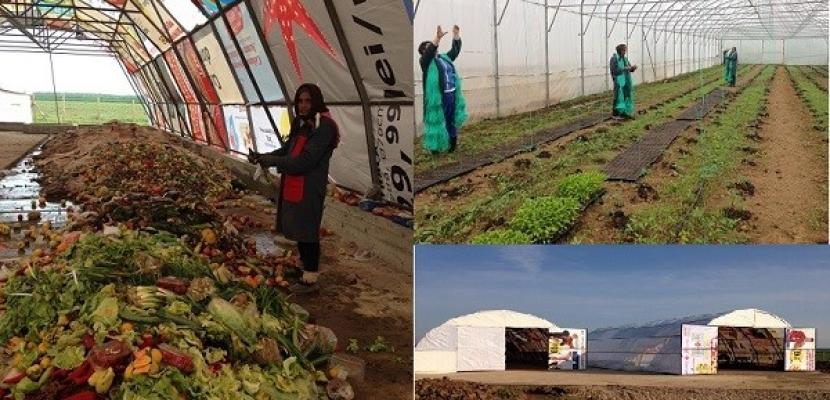
Social enterprise in composting and organic farming

About this good practice
Huge amounts of food are wasted even before reaching consumers and are discarded by supermarkets, usually going to landfills. Also, a large part of domestic waste is represented by bio-degradable materials that could be recycled by composting.
The Bio&Co project started in 2015 in Ciocanari, Dambovita county, with technical support from Réseau Cocagne, France. It collects waste food from supermarkets, hotels and restaurants on a 1000 m2 composting platform. The compost is used in the organic farm and green house of the social enterprise and the produce is delivered in a short supply chain to subscribers, mainly in Bucharest.
The organic farm is an example of circular economy of biological flows, because all waste is recycled on the composting platform together with food waste from supermarkets. Considering the large amounts of food waste resulting from supermarkets and restaurants, there is also potential to sell the compost in the future.
Stakeholders are Ateliere Fara Frontiere NGO, Carrefour supermarket chain, Accor Hotels. Beneficiaries are the employees of the Bio&Co organic farm and subscribers.
Expert opinion
Globally, food waste alone generates about 8% – 10% of global greenhouse gas emissions. It is estimated that Europe produces 89 million tonnes of food waste each year, equivalent to €143 billion. The reduction of food loss and waste is an important part of EU’s Farm to Fork Strategy. The revised Waste Framework Directive urges the Member States to take the necessary measures to reduce food waste by the end of 2030: by 10%, in processing and manufacturing and by 30% (per capita), jointly at retail and consumption (restaurants, food services and households). Member States should also provide incentives for the collection of unsold food products at all stages of the food supply chain. This good practice creates a local circular solution, where food waste from retail and restaurants is turned into compost, which is then used at a local organic farm. Moreover, the social enterprise creates jobs for people at risk of poverty and exclusion. Such solution can be transferred to other EU regions.
Resources needed
Evidence of success
- 1023 t waste food collected in 2016-2018
- over 4783 vegetable baskets delivered to over 200 subscribers in 2016-2018
- 27253 kg of food diverted from waste and reused / donated to social canteens
- 1000 m2 composting platform
- 4000 m2 greenhouses and 4 ha agricultural land used for organic farming, where compost from the platform is applied
- over 80 varieties grown
- organic certification
Potential for learning or transfer
The NGO plans to develop an educational organic farm, where children can learn about healthy food, waste prevention and sound management, environmental protection.
The project is a good example of bio-based circular economy.
Further information
Website
Good practice owner
You can contact the good practice owner below for more detailed information.
Workshops Without Frontiers/ Ateliere Fara Frontiere

